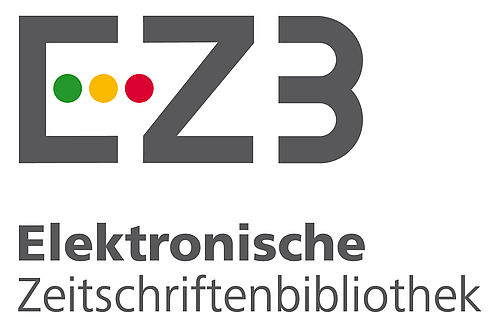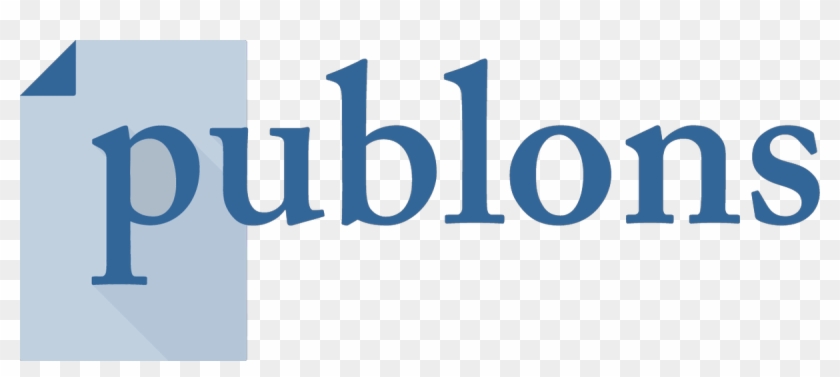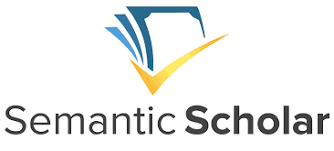Abstract
Supporting Institution
kafkas üniversitesi Bilimsel Araştırma Projeleri koordinatörlüğü
Project Number
2013-FEF-90
References
- REFERENCES 1. Aydın, Ö., 2011. ‘Tarçın, Kimyon Ve Sumak Adlı Baharat Türlerinden Elde Edilen Su, Etanol-Su, Metanol ve Kloroform Ekstraktlarının In Vitro Antioksidan Özelliklerinin Belirlenmesi’ Atatürk University, Institute of Health Sciences, Pharmacy-Biochemistry Department, Erzurum.
- 2. Becarano, S. J., Emden, C., 1946. “Pratik Tıbbi Formüller”. İsmail Akgün Printing Hause. İstanbul.
- 3. Büyükleyla, M., 2007. ‘Thymol’ün İnsan Lenfositlerinde Kardeş Kromatid Değişimi, Kromozom Anormalliği ve Mikronükleus Oluşumu Üzerine Etkileri’. Çukurova University, Graduate School of Natural and Applied Sciences, Department of Biology, Adana.
- 4. Demiralay, H., 2010. “Thymbra Spicata Labiatae Oil’in (Karabaş Kekik Yağı) Ve Atorvastatin’in Antihiperkolesterolemik Etkinliğinin Araştırılması’ Süleyman Demirel Üniversitesi, Sağlık Bilimleri Enstitüsü Biyokimya Anabilim Dalı Isparta.
- 5. Galloway, S.M., Miller, J.E., Armstrong, M.J., Bean, C.L., Skopek, T.R., Nıchols, W.W., 1998. “DNA Synthesis İnhibition As An İndirect Mechanism Of Chromosome Aberrations: Comparison Of DNA-Reactive And Nondna-Reactive Clastogens”. J. Mutat. Res. 400,169-186.
- 6. İpek, E., Tüylü, B.A., Zetinoğlu, H., , 2003. “Effects Of Carvacrol On Sister Chromatid Exchanges İn Human Lymphocyte Cultures”. J. Cytotechnology. 43,1-3:145-148.
- 7. Natarajan, A. T., Obe, G., 1982. “Mutagenicity Testing With Cultured Mammalian Cells: Cytogenetic Assays”. In: Heddle JA(ed) Mutagenicity. New Horizons in Genetic Toxicology. Academic Pres, New York, 1-213.
- 8. Nazlıgül, E., 2009. ‘Miyelodisplastik Sendromlu Olgularda Genomik İnstabilitenin Farklı Sitogenetik Yöntemlerle (Kromozom Aberasyonu, Kardeş Kromatid Değişimi, Mikronukleus) Araştırılması’, Istanbul University, Institute of Health Sciences, Department of Genetics / Genetics Master Thesis, İstanbul.
- 9. Sevinç, B., 2006. ‘Hematolojik Malign Hastalıklarda Genomik İnstabilitenin Farklı Sitogenetik Yöntemlerle (Kromozom Aberasyonu, Kardeş Kromatid Değişimi, Mikronukleus) Araştırılması’. Istanbul University Institute of Health Sciences, Department of Medical Genetics, Master Thesis, İstanbul.
- 10. Speit, G., Haupter, S., 1985. On the mechanism of differantial giemsa staining of bromodeoxyuridine substitued chromosomes. II. Differences Between the demonstration of sister chromatid differantiation and replication patterns. J. Hum. Genet. 70, 126-129.
- 11. Uzun, S., 2007. ‘Sodyum Hipoklorite Maruz Kalmış Kişilerin Lenfositlerindeki Mikronükleus Sıklığının Araştırılması’, Master Thesis, Erciyes University, Institute of Health Sciences, Department of Medical Biology, Kayseri.
- 12. Yavuz, A., 2005. ‘Benzol Peroksit’in İnsan Periferal Lenfositlerinde in vitro Genotoksik Etkileri’. Çukurova University, Graduate School of Natural and Applied Sciences, Department of Biology, Adana.
The Determination of the Effects of Wild Thyme (Thymbra spicata L.) and Cumin (Cuminum cyminum L.) Extracts on SCE (Sister Chromatid Exchange) in Human Lymphocyte Chromosomes
Abstract
The purpose of
this work is to determine of T. spicata L.
and C. cyminum L. plant extracts on
sister chromatid exchange rate in human peripheral lymphocyte culture as in vitro. Human blood lymphocyte cells, T. spicata L. and C. cyminum L. plant
extracts were allowed to interact with doses of 0.05 µL/mL, 0.10 µL/mL, 0.15
µL/mL and 0.20 µL/mL for 24 hours. When trial groups where plant extracts were
applied were compared with negative control and mitomycin-C (MMC) which was
used as positive control, it was determined that the extract doses applied led
to an increase in sister chromatid exchange rate. Also, it was found that
increasing concentrations of plant extracts caused cell replication index to
decrease. Between C. cyminum L. doses
and RI, a negative correlation (r = -0.95) was observed and between T. spicata L. doses and RI a negative correlation was observed (r = -0.94)
respectively. As a result of this study; T.
spicata L. and C. cyminum L.
plant extracts were found to have genotoxic and clastogenic effects on human
peripheral lymphocytes.
Keywords
Project Number
2013-FEF-90
References
- REFERENCES 1. Aydın, Ö., 2011. ‘Tarçın, Kimyon Ve Sumak Adlı Baharat Türlerinden Elde Edilen Su, Etanol-Su, Metanol ve Kloroform Ekstraktlarının In Vitro Antioksidan Özelliklerinin Belirlenmesi’ Atatürk University, Institute of Health Sciences, Pharmacy-Biochemistry Department, Erzurum.
- 2. Becarano, S. J., Emden, C., 1946. “Pratik Tıbbi Formüller”. İsmail Akgün Printing Hause. İstanbul.
- 3. Büyükleyla, M., 2007. ‘Thymol’ün İnsan Lenfositlerinde Kardeş Kromatid Değişimi, Kromozom Anormalliği ve Mikronükleus Oluşumu Üzerine Etkileri’. Çukurova University, Graduate School of Natural and Applied Sciences, Department of Biology, Adana.
- 4. Demiralay, H., 2010. “Thymbra Spicata Labiatae Oil’in (Karabaş Kekik Yağı) Ve Atorvastatin’in Antihiperkolesterolemik Etkinliğinin Araştırılması’ Süleyman Demirel Üniversitesi, Sağlık Bilimleri Enstitüsü Biyokimya Anabilim Dalı Isparta.
- 5. Galloway, S.M., Miller, J.E., Armstrong, M.J., Bean, C.L., Skopek, T.R., Nıchols, W.W., 1998. “DNA Synthesis İnhibition As An İndirect Mechanism Of Chromosome Aberrations: Comparison Of DNA-Reactive And Nondna-Reactive Clastogens”. J. Mutat. Res. 400,169-186.
- 6. İpek, E., Tüylü, B.A., Zetinoğlu, H., , 2003. “Effects Of Carvacrol On Sister Chromatid Exchanges İn Human Lymphocyte Cultures”. J. Cytotechnology. 43,1-3:145-148.
- 7. Natarajan, A. T., Obe, G., 1982. “Mutagenicity Testing With Cultured Mammalian Cells: Cytogenetic Assays”. In: Heddle JA(ed) Mutagenicity. New Horizons in Genetic Toxicology. Academic Pres, New York, 1-213.
- 8. Nazlıgül, E., 2009. ‘Miyelodisplastik Sendromlu Olgularda Genomik İnstabilitenin Farklı Sitogenetik Yöntemlerle (Kromozom Aberasyonu, Kardeş Kromatid Değişimi, Mikronukleus) Araştırılması’, Istanbul University, Institute of Health Sciences, Department of Genetics / Genetics Master Thesis, İstanbul.
- 9. Sevinç, B., 2006. ‘Hematolojik Malign Hastalıklarda Genomik İnstabilitenin Farklı Sitogenetik Yöntemlerle (Kromozom Aberasyonu, Kardeş Kromatid Değişimi, Mikronukleus) Araştırılması’. Istanbul University Institute of Health Sciences, Department of Medical Genetics, Master Thesis, İstanbul.
- 10. Speit, G., Haupter, S., 1985. On the mechanism of differantial giemsa staining of bromodeoxyuridine substitued chromosomes. II. Differences Between the demonstration of sister chromatid differantiation and replication patterns. J. Hum. Genet. 70, 126-129.
- 11. Uzun, S., 2007. ‘Sodyum Hipoklorite Maruz Kalmış Kişilerin Lenfositlerindeki Mikronükleus Sıklığının Araştırılması’, Master Thesis, Erciyes University, Institute of Health Sciences, Department of Medical Biology, Kayseri.
- 12. Yavuz, A., 2005. ‘Benzol Peroksit’in İnsan Periferal Lenfositlerinde in vitro Genotoksik Etkileri’. Çukurova University, Graduate School of Natural and Applied Sciences, Department of Biology, Adana.
Details
| Primary Language | English |
|---|---|
| Subjects | Structural Biology |
| Journal Section | Research Article |
| Authors | |
| Project Number | 2013-FEF-90 |
| Publication Date | December 26, 2019 |
| DOI | https://doi.org/10.38093/cupmap.656156 |
| IZ | https://izlik.org/JA46XF46DU |
| Published in Issue | Year 2019 Volume: 2 Issue: 2 |
Cite
-------------------------------------------------------------------------------------------------------------------------------













-------------------------------------------------------------------------------------------------------------------------
 CUPMAP Journal is licensed under a Creative Commons Attribution-NonCommercial-NoDerivatives 4.0 International License.
CUPMAP Journal is licensed under a Creative Commons Attribution-NonCommercial-NoDerivatives 4.0 International License.
-----------------------------------------------------------------------------------------------------------------------------------------
This is an open access journal which means that all content is freely available without charge to the user or his/her institution. Users are allowed to read, download, copy, distribute, print, search, or link to the full texts of the articles, or use them for any other lawful purpose, without asking prior permission from the publisher or the author. This is in accordance with the BOAI definition of open access.
